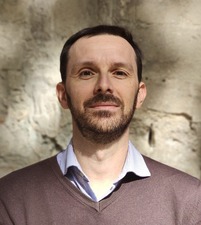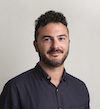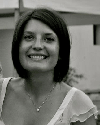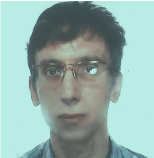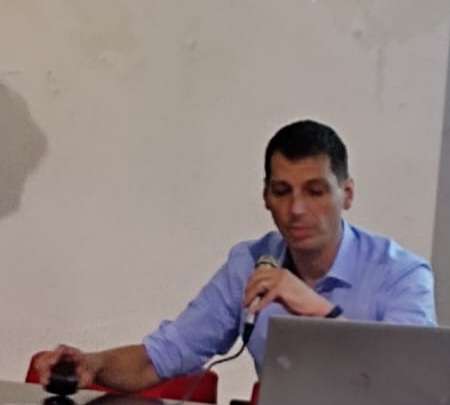Studying at the University of Verona
Here you can find information on the organisational aspects of the Programme, lecture timetables, learning activities and useful contact details for your time at the University, from enrolment to graduation.
Academic calendar
The academic calendar shows the deadlines and scheduled events that are relevant to students, teaching and technical-administrative staff of the University. Public holidays and University closures are also indicated. The academic year normally begins on 1 October each year and ends on 30 September of the following year.
Course calendar
The Academic Calendar sets out the degree programme lecture and exam timetables, as well as the relevant university closure dates..
| Period | From | To |
|---|---|---|
| 1 A | Sep 26, 2022 | Nov 5, 2022 |
| 1 B | Nov 14, 2022 | Dec 22, 2022 |
| 2 A | Feb 13, 2023 | Apr 6, 2023 |
| 2 B | Apr 12, 2023 | May 27, 2023 |
| Session | From | To |
|---|---|---|
| Sessione invernale | Jan 9, 2023 | Feb 11, 2023 |
| Sessione estiva | Jun 5, 2023 | Jul 29, 2023 |
| Sessione autunnale | Aug 28, 2023 | Sep 23, 2023 |
| Session | From | To |
|---|---|---|
| Sessione straordinaria (a.a. 2021/22) | Mar 31, 2023 | Apr 6, 2023 |
| Sessione estiva | Jul 10, 2023 | Jul 15, 2023 |
| Sessione autunnale | Nov 6, 2023 | Nov 11, 2023 |
| Sessione straordinaria | Apr 2, 2024 | Apr 8, 2024 |
| Period | From | To |
|---|---|---|
| Chiusura edifici | Oct 31, 2022 | Oct 31, 2022 |
| Festa di Ognissanti | Nov 1, 2022 | Nov 1, 2022 |
| Festa dell'Immacolata | Dec 8, 2022 | Dec 8, 2022 |
| Chiusura edifici | Dec 9, 2022 | Dec 10, 2022 |
| Vacanze di Natale | Dec 23, 2022 | Jan 7, 2023 |
| Vacanze di Pasqua | Apr 7, 2023 | Apr 10, 2023 |
| Festa della Liberazione | Apr 25, 2023 | Apr 25, 2023 |
| Festa del lavoro | May 1, 2023 | May 1, 2023 |
| Festa del Santo Patrono | May 21, 2023 | May 21, 2023 |
| Festa della Repubblica | Jun 2, 2023 | Jun 2, 2023 |
| Chiusura estiva | Aug 13, 2023 | Aug 19, 2023 |
Exam calendar
Exam dates and rounds are managed by the relevant Culture and Civilisation Teaching and Student Services Unit.
To view all the exam sessions available, please use the Exam dashboard on ESSE3.
If you forgot your login details or have problems logging in, please contact the relevant IT HelpDesk, or check the login details recovery web page.
Should you have any doubts or questions, please check the Enrollment FAQs
Academic staff
 luca.bochicchio@univr.it
luca.bochicchio@univr.it
 monica.cristini@univr.it
monica.cristini@univr.it
 dario.donetti@univr.it
dario.donetti@univr.it
 elisa.lerco@univr.it
elisa.lerco@univr.it
 pieralberto.porcedducilione@univr.it; pierre_pordd@yahoo.it
pieralberto.porcedducilione@univr.it; pierre_pordd@yahoo.it
 045 8028732
045 8028732
 alberto.scandola@univr.it
alberto.scandola@univr.it
Study Plan
The Study Plan includes all modules, teaching and learning activities that each student will need to undertake during their time at the University.
Please select your Study Plan based on your enrollment year.
1° Year
| Modules | Credits | TAF | SSD |
|---|
2° Year activated in the A.Y. 2023/2024
| Modules | Credits | TAF | SSD |
|---|
| Modules | Credits | TAF | SSD |
|---|
| Modules | Credits | TAF | SSD |
|---|
| Modules | Credits | TAF | SSD |
|---|
Legend | Type of training activity (TTA)
TAF (Type of Educational Activity) All courses and activities are classified into different types of educational activities, indicated by a letter.
Type D and Type F activities
| years | Modules | TAF | Teacher | |
|---|---|---|---|---|
| 2° | Music in History | F |
Vincenzo Borghetti
(Coordinator)
|
|
| 1° 2° | FAI Activities | F |
Edoardo Bianchi
(Coordinator)
|
|
| 1° 2° | Worlds of Fashion: Themes and Actors | F |
Alessandra Zamperini
(Coordinator)
|
|
| years | Modules | TAF | Teacher | |
|---|---|---|---|---|
| 2° | Music in History | F |
Vincenzo Borghetti
(Coordinator)
|
|
| 1° 2° | FAI Activities | F |
Edoardo Bianchi
(Coordinator)
|
|
| 1° 2° | Worlds of Fashion: Themes and Actors | F |
Alessandra Zamperini
(Coordinator)
|
|
| years | Modules | TAF | Teacher | |
|---|---|---|---|---|
| 1° | That scandalous can: Piero Manzoni’s Artist’s Shit (1961). International conference | F |
Luca Bochicchio
(Coordinator)
|
|
| 1° | Sigecweb computer system introduction course | F |
Ada Gabucci
(Coordinator)
|
|
| 1° | Graphic and photographic documentation of the archaeological artefacts: from traditional drawings to digital sources | F |
Diana Sergeeva Dobreva
(Coordinator)
|
|
| 1° | Workshop on the History of Manuscript Illumination | F |
Margherita Zibordi
(Coordinator)
|
|
| 1° | La collezione AGI Verona in Santa Marta e altri sedi universitarie a Verona | F |
Valerio Terraroli
(Coordinator)
|
|
| 1° | Works on display, 2023. Alessandro Turchi known as Orbetto, painter on copper and blackboard: the Madonna and Child with Saints Peter the Martyr, Zeno and Tuscany. | F |
Giorgio Fossaluzza
(Coordinator)
|
|
| 1° | Web for Cultural Heritage | F |
Piergiovanna Grossi
(Coordinator)
|
|
| 1° 2° | FAI Activities | F |
Edoardo Bianchi
(Coordinator)
|
|
| years | Modules | TAF | Teacher | |
|---|---|---|---|---|
| 1° | Sigecweb computer system introduction course | F |
Ada Gabucci
(Coordinator)
|
|
| 1° | Graphic and photographic documentation of the archaeological artefacts: from traditional drawings to digital sources | F |
Diana Sergeeva Dobreva
(Coordinator)
|
|
| 1° | Workshop on the History of Manuscript Illumination | F |
Margherita Zibordi
(Coordinator)
|
|
| 1° | La collezione AGI Verona in Santa Marta e altri sedi universitarie a Verona | F |
Valerio Terraroli
(Coordinator)
|
|
| 1° | Web for Cultural Heritage | F |
Piergiovanna Grossi
(Coordinator)
|
|
| 1° 2° | FAI Activities | F |
Edoardo Bianchi
(Coordinator)
|
|
| years | Modules | TAF | Teacher | |
|---|---|---|---|---|
| 1° | Conference Civici Museum Verona | F |
Tiziana Franco
(Coordinator)
|
|
| 1° | Future's Festival | F |
Alessandra Zangrandi
(Coordinator)
|
|
| 1° 2° | cultural Thursday ISSR Verona | F |
Tiziana Franco
(Coordinator)
|
|
| 1° 2° | The house of Erizzo and the image of aristrocracy in Venice | F |
Alessandra Zamperini
(Coordinator)
|
|
Economics and economic problems of the art market (m) (2023/2024)
Teaching code
4S02327
Teacher
Coordinator
Credits
6
Language
Italian
Scientific Disciplinary Sector (SSD)
SECS-P/01 - ECONOMICS
Period
CuCi 2 A, CuCi 2 B
Courses Single
Authorized
Learning objectives
The course will provide the basic knowledge to understand the functioning of an economic system, analysing in particular the size and role of the art sector with its artistic-cultural goods. Lectures will be partly theoretical and partly empirical, addressed both from the demand side and from the supply side. They will be introduced by an analysis of the historical evolution of economic thought - and of the relative schools of thought – concerning the topic. The age-old dilemma between state and market in promoting these goods will be emphasized. The role of economic policies in supporting the sector will be explored, when market failures occurred or when art is to be promoted, beyond its strictly economic impact. The student at the end of the course will be able to evaluate how the art sector is connected to the rest of the economy, its degree of contribution to economic wealth and employment, the factors that determine the price of artistic-cultural goods and the dilemmas that economically they pose to the market, making public intervention useful, if not necessary, in supporting the sector.
Prerequisites and basic notions
No prerequisites in economics, history or mathematics are required, except for elementary knowledge of geometry (graphs) and algebra (simple equations), included in middle or first years high school curriculum. The verbal language, as against the formal-math language, will be given the preference.
Program
Economics of art does not exist as a separate scientific discipline from economics, as in similar fashion, it does not exist automobile economics or furniture economics. However the artistic and cultural goods possess nonstandard features as compare to traditional goods. A wood paint or a bronze sculpture - also from economic point of view - are different from a piece of furniture or a metal lathe. Economics of art (or economics of culture, as it is best known in English) uses the tools known to economics that best fit the study of this type of goods. The course will apply macroeconomic, mesoeconomic, and microeconomic concepts to deal with them.
Programme
1. Introduction: the art of economics and the economics of art (and culture)
2. Artistic and cultural goods (ACG) in the history of economic thought.
3. Economic wealth and nonmarket values
4. The weight of ACG in national accounts
5. Cultural values and the causes of economic wealth
6. Economic features of ACG
7. The demand side of ACG
8. The supply side of ACG
9. Art market and the role of prices
10. Economic policy in support of ACG
Textbooks:
Nardi Spiller C., Incontro con l’economia dell’arte, Torino, G. Giappichelli, 2005.
Candela G. e Scorcu A., Economia delle arti, Bologna, Zanichelli, 2004.
Bibliography
Didactic methods
In addition to the traditional lectures, we will try to involve the attending student, in deepening and discussing a topic of his choice, among those offered by the teacher during the course. Weekly tests will also be available through the course website to verify the degree of learning.
Learning assessment procedures
Written exam in a quiz format, and optional oral examination. Additional bonuses are given to those involved with a discussion topic during the course, and with active participation during the class.
Evaluation criteria
The tests tend to verify reasoning more than mnemonic knowledge. The degree of theoretical understanding and the degree of applied use of what has been learned will be assessed.
Criteria for the composition of the final grade
Written exam: 50% mark on theoretical knowledge + 50% mark on numerical-empirical knowledge. Oral exam can improve the written mark (if sufficient). Bonuses for a project work or active class participation add further points to the obtained grade of the exam.
Exam language
Italiano
Career prospects
Module/Programme news
News for students
There you will find information, resources and services useful during your time at the University (Student’s exam record, your study plan on ESSE3, Distance Learning courses, university email account, office forms, administrative procedures, etc.). You can log into MyUnivr with your GIA login details: only in this way will you be able to receive notification of all the notices from your teachers and your secretariat via email and soon also via the Univr app.
Double degree
The University of Verona, through a network of agreements with foreign universities, offers international courses that enable students to gain a Double/Joint degree at the time of graduation. Indeed, students enrolled in a Double/Joint degree programme will be able to obtain both the degree of the University of Verona and the degree issued by the Partner University abroad - where they are expected to attend part of the programme -, in the time it normally takes to gain a common Master’s degree. The institutions concerned shall ensure that both degrees are recognised in the two countries.
Places on these programmes are limited, and admissions and any applicable grants are subject to applicants being selected in a specific Call for applications.
The latest Call for applications for Double/Joint Degrees at the University of Verona is available now!
Student login and resources
Prova finale
Alla prova finale per il conseguimento della laurea magistrale in Storia delle arti sono assegnati 24 cfu. La prova finale consiste nella preparazione e nella discussione di una tesi di laurea magistrale, di non meno di 120 pagine scritte, elaborata in modo originale dallo studente sotto la guida di un docente relatore; è prevista la figura del correlatore. L'argomento della prova finale deve riguardare uno degli insegnamenti del piano di studi. I laureati devono saper dimostrare con il lavoro di tesi di aver applicato le loro conoscenze, di possedere capacità di comprensione e abilità nella risoluzione di problemi e nell'affrontare tematiche nuove in modo autonomo e in un contesto di ricerca e di progettazione originale. La discussione della prova finale ha luogo davanti a una Commissione composta secondo le relative norme del Regolamento didattico di Ateneo. Per la prova finale è previsto un massimo di 7 punti. Per l'attribuzione del punteggio la commissione si attiene ai seguenti criteri: 1) originalità dell'elaborato; 2) efficacia e coerenza nelle argomentazioni; 3) qualità della scrittura; 4) capacità dello studente di illustrare e discutere adeguatamente il suo lavoro davanti alla commissione. La votazione è espressa in centodecimi, a cui la Commissione può aggiungere, in casi di eccellenza, la distinzione della lode.
Adempimenti amministrativi e scadenze domanda di laurea
Calendari discussione e proclamazione di laurea

